|
Word Gems
exploring self-realization, sacred personhood, and full humanity

Jiddu Krishnamurti
1895 - 1986
| Editor’s prefatory comments |
return to contents page
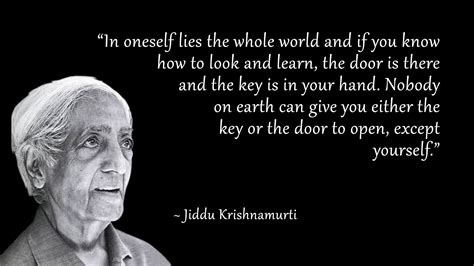
Jiddu Krishnamurti has been an important teacher in my life. I began learning about the “true” and “false” selves about 15 years ago, and his insights helped to inaugurate this vital area of enquiry.
pointing the way
He was the one to make clear that “guru” signifies merely “one who points,” not “infallible sage.” Pointing the way is what even the best teachers might provide, but no more. One must walk the path of enlightenment alone, make our own discoveries, and no one can do this for us.
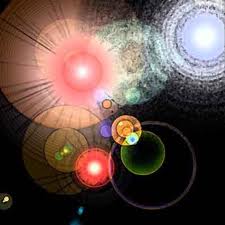
just tell us plainly
In line with this, early in my investigations of his teachings, I would sometimes feel frustrated, "Why doesn't he just tell us exactly how to meditate the right way? or how to bring about the state of 'no you and no me'?" Later, I would understand. He couldn't delineate precisely because no one can tell us these things. "Truth is a pathless land," K would often assert. It could be a little different for each person.
you must teach yourself
But here's the general direction. As one endeavors to become very alert, monitoring one's own mind, the choiceless awareness, discerning the inner disorder, and this, without rendering judgment, one will yet be given flash insights into what works and what doesn't. Follow these breadcrumbs; follow them, inwardly, to center of being. Eventually, more and more, one is led into a sense of certainty. And this is how one "teaches oneself", as K would say.
Krishnamurti was famous in his lifetime. For 60 years he traveled the world, lecturing on the “inner life,” defining concepts such as meditation, dualism, observer and observed, inward freedom, pleasure-based morality, conditioned beliefs, awareness of inner disorder, identification with thought-forms, “no you and no me,” choiceless awareness, living without resistance, the mind colored by the past, and other principles. All these are very important.
However, I thought I should state that not everything K taught, according to what I see, is accurate. I sometimes comment on these points of departure as “Editor’s notes” in his transcribed lectures.
.jpg)
truth detector
How can we know that K or any teacher speaks rightly and accurately? There’s only one way. As one sedulously, and honestly, investigates, then one will be offered one’s own insights.
But, how can one know who’s correct? – the teacher or the student? Let’s recall that there are no gurus in the sense of “infallible sages.” This means that, in a larger sense, there are no teachers – we’re all students. And this is why, in the Gospel Of Thomas, the Jesus in that writing asserts, “I am not your teacher.”
each is taught directly by God, if one allows it
This is so because each human being must be taught directly by God, the Universe, the Source, or whatever term you’d prefer. And years on the job is no guarantee of wisdom. An honest newcomer might see things that have bedeviled the elites for centuries.
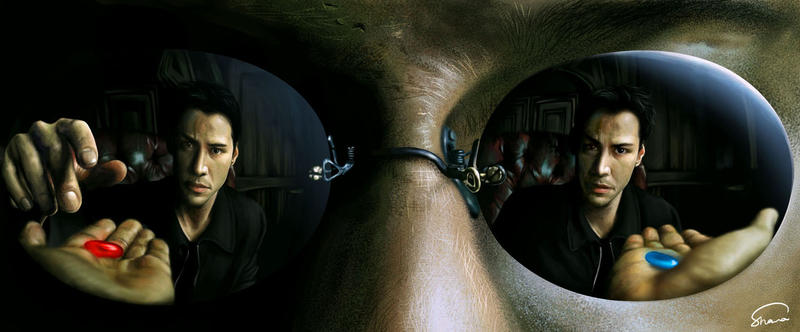
This is also a true principle concerning afterlife messages. There are some immature and unscrupulous teachers on the other side who love to assert, “We’re over here, so we really know.” But better heads in the next worlds say things like “Be led by no one who claims all wisdom. Even those who have been here for ages have seen but a tiny fraction of these realms and know even less of what might be known.”
|
there is a hidden reality, unperceived by the five senses, Krishnamuti called it 'the immensity' or 'the state of creation itself' or 'that which is beyond the mind'; in each of his 1000+ lectures, directly or indirectly, he refers to this realm of ultimate truth
Plato spoke of this in his famous analogy of the cave. What we think is real is just a shadow on the wall. We're all deluded.
Kant, as well, was onto this 250 years ago. He used terms like “phenomena,” things as mere appearances, images in the mind, not real in themselves; and “noumena,” things in themselves, as they truly are, the actual essence of reality.
With common human sensibilities, said Kant, we can never know the noumena but only phenomena. We never access ultimate reality. In this vein, professor Kant instructed that space and time, grand examples, are merely representations of the mind, have no existence independent of human perception.
Over 100 years later, Einstein made all of this famous with his pronouncements on the “space-time continuum.” It’s not made of space, not made of time, not a combination of the two, but an underlying matrix of reality, something unknowable to us, giving rise to what we merely perceive as space and time.
The noted physicist David Bohm, too, posited "the implicate order" as the unseen spawning ground of visible reality.
Only several years after Einstein published his 1915 paper on General Relativity, Krishnamurti began to speak of 'the immensity' or 'the state of creation itself' or 'that which is beyond the mind'.
if you understand this, then you’ll see what K is trying to put forward
Almost everyone is unaware of the hidden reality. So many of us are materialists, and do not truly accept the existence of an unseen spiritual realm.
The five senses cannot access it. In fact, the thinking mind itself gets in the way. We have to learn how to shut down or circumvent the censoring apparatus of the physically-oriented brain. We want this because ultimate reality is a domain offering a higher level of intelligence, far beyond that of rationality and logic.
These, of course, have their place; with them, we can build bridges and skyscrapers, make poetry and paintings, go to the Moon and Mars; and, while all this is good, the thinking mind short-circuits the process of accessing “the immeasurable.” It doesn't work for that.
Krishnamurti’s lectures tell us how to get to where we need to go.
The good news is that we were made to apprehend this higher dimension. We can do this. We just need to learn how to upgrade our software.
Special note: A Kairissi-and-Elenchus dialogue has been created to explore "the immensity" in relation to authentic romantic love.
READ MORE
|
|
another governing concept of K’s 1000+ lectures
24.Dec.1958. The individual is of the highest importance - even though society, religion, governments do not recognize that fact. You are very important because you are the only means of bringing about the explosive creativity of Reality. You yourself are the environment in which this Reality can come into being.
not condemning oneself unfolds the inner person
28.Dec.1958. True personal change is not an adjustment to environment but radical transformation. It will come about instantaneously, immediately, when there is comprehension, a perceiving of the whole. How to achieve this total-field perception? It must occur naturally, effortlessly. Most of us are in a state of contradiction. We think one thing but want and do another. Realizing this tension, we say “I must not think about that!” However, we are not to engage in this self-condemnation; trying to obliterate the contradiction by giving strength to one of the opposites. Instead, simply notice the tension, follow it, inwardly, back to source. This open and self-forgiving attitude, somehow, at the soul-level, allows the entire inner person to unfold itself. We begin to feel, not only our own condition, but the total suffering of man on planet Earth. When this occurs, a radical transformation of one’s person begins – instantly, effortlessly, spontaneously. Suddenly, more and more, the mind is set free from cultural conditioning, becomes a bubbling cauldron of creativity itself – sparks and flashes of insight every day -- and a new son or daughter of God, now, in a real sense, is born into the cosmos.
|
it takes more than great age to be wise
Also, the truly wise point out that some on the Earth, if they’re linked to Universal Intelligence, might perceive certain truths which have escaped the ancients over there. See "the 500 tape-recorded messages from the other side" writing for more discussion.
hidden
Krishnamurti was not a perfect man, and after his passing it came to be known that, in some areas of his life, he'd spoken one thing but lived another. Great scandals were revealed.
This contradiction between word and deed caused, for him, as it would for anyone, a measure of mental darkness.
K even denied the reality of the afterlife; he, of all people, should have known better. But he adopted this belief as protection against future accountability. See more at the bottom of the following article.
was anyone actually transformed by the teachings of Krishnamurti
This question was asked in the book, Infinite Potential: The Life and Times of David Bohm, by Dr. David Peat.
Physicist David Bohm was Krishnamurti’s most famous disciple. Near the end of their lives, Bohm and K had a falling out. The teachings could not prevent ordinary squabbling and “protecting one’s territory.”
Krishnamurti, along with close associates, asked, had anyone been truly changed by the teachings? Bohm wanted to say yes, but he hesitated and wondered if he had.
Strangely, Krishnamurti asked if he himself had been truly, inwardly benefited!
And the comment was made, too, where is the transformation among the inner circle of K’s helpers and attendants, those closest to the teachings? No one could really point to anything definite.
All of this is problematic, and very telling, concerning the efficacy of “going within” and discovering the inner life; meaning, great teachings are not enough; if one approaches them in a materialistic manner, they will not help you, even if you promote them to others.
what can we learn from this anomaly
While I did not learn of the “true self” from Krishnamurti, I have greatly benefited from this genre of teachings. But, again, why is it that some closest to the source of instruction might experience a dry well?
As I see it, Krishnamurti began well. His best work, in my opinion, occurred during the 1930s and the subsequent initial years, when he was relatively unknown. But the potency of his teachings, especially to himself and close followers, began to progressively wane in later decades as fame and money flowed to him.
how to be a friendly neighborhood guru
I’m reminded of Will and Ariel Durant’s observation that,
“The only real revolution is the enlightenment of the mind and the improvement of character; the only real emancipation is individual, and the only real revolutionists," the only ones who effect meaningful and lasting change, "are philosophers and saints." The Lessons of History
We note that they did not say that real change for troubled human beings is effected by rich celebrities and wealthy institutions or lauded teachers. Is this assessment too harsh?
There could be exceptions, but we can’t think of any right now. And then there’s the comment of Jesus about how difficult it is for a rich person to find the kingdom of God.
As soon as a teacher enjoys a measure of success, then the question quickly becomes, “who will write the checks and control the real estate?” This heady proposition alters attitudes.
And now the handlers of said celebrated guru hover about, waiting, like vultures, for their chance to control assets, once the head honcho passes on. This is the story of most every religion on the planet.
Editor's note: Ernest Hemingway said something similar:
|
as an artist becomes famous, the sacred creativity process, which brought him to the fore, is often abandoned, resulting in a production of the banal
Ernest Hemingway, acceptance speech, 1954 Nobel Prize in Literature (excerpt):
"Things may not be immediately discernible in what a man writes, and, in this, sometimes he is fortunate; but, eventually, they are quite clear, and by these and the degree of alchemy that he possesses, he will endure or be forgotten.
"Writing, at its best, is a lonely life…[the writer] grows in public stature as he sheds his loneliness and [then] often his work deteriorates. For he does his work alone, and, if he is a good enough writer, he must face eternity, or the lack of it, each day."
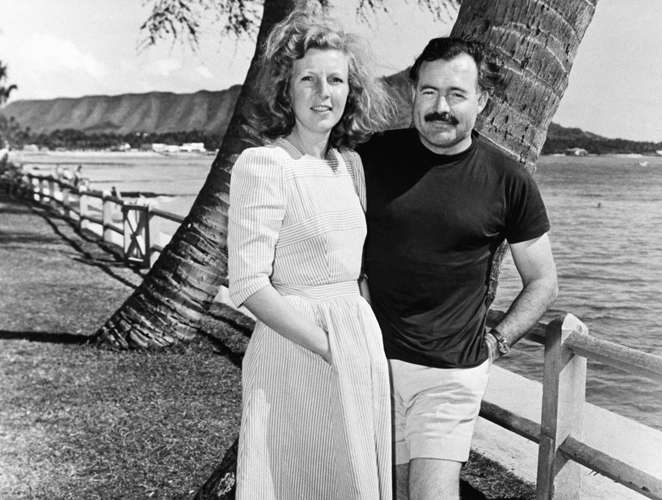
Gellhorn and Hemingway
Editor’s note: We understand Hemingway’s warning. How often we have seen artists, in various fields of endeavor, rise meteorically in public acclaim due to outstanding work, but then falling victim to the siren song, with a forgetting of how he or she got there. In times past, I would ask, "Why aren't they still producing the great songs, the great books, the great paintings?" Hemingway explains it to us.
the perdition of venality
Once you’re doing well enough to land the Oprah interview, or the mega book-deal advance, or the stadiums jammed with screaming fans, chances are - you’re on the way down. The muse gasps and sputters for its breath of life. You begin to believe the propaganda of the fickle mob gushing what a genius you are. Elitism ossifies the heart. You start to rely on innate ability, mere talent; you're not "listening" anymore, as Isaiah did. The early workshop of haunting introspection, the laboring alone in the dark, the quest to express an image of beauty that is sensed but not articulated, is summarily abandoned; bright lights and applause now distract and dull the mind - and the rules of higher creativity are shunted to the side.
the creeping self-damnation
You might still produce art, but not worthy of the term; and, for a time, the egoic crowd, seeking to identify with a "hero," will scramble for it; but - you, yourself, with great disdain, will understand, too well - it won’t be great art, it won’t be long remembered, it won’t represent "facing eternity,” as per Hemingway.
It is the perdition of venality, the unremitting torment of lost, once-creative, souls.
|
|
How can one spend one's life promoting, teaching others of the inner riches, gain new insights into its existence and workings, but remain largely unaffected by this living truth?
John 8:32, "And ye shall know the truth, and the truth shall make you free.”
One of the great wisdom scriptures. We note that knowing about the truth is not enough, but one must know it directly; suggesting a communion, a flowing into, a harmony and oneness with the truth.
Krishnamurti himself doubted that he had been transformed by his own message. But it’s not just K standing on uncertain ground. There are many teachers in the world who instruct concerning the inner life, the true self. And yet, as I came to see over the years, most of these teachers, if they speak long enough, will say things espousing totalitarian agenda; subtle, and sometimes overt, assertions indicating “I am better, I am above.” They become the self-satisfied man in Jesus’ parable, “I thank thee Lord that I am not like other men.”
It is quite clear that they know “about” the truth but without having encountered it intimately.
An analogy of the ancient Israelite temple can help us understand.
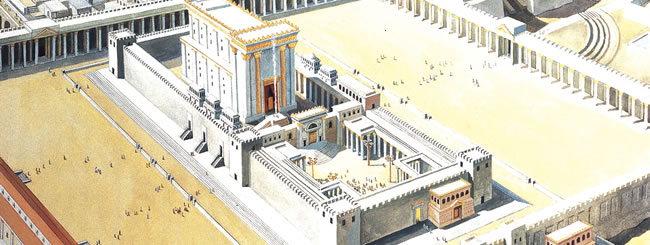
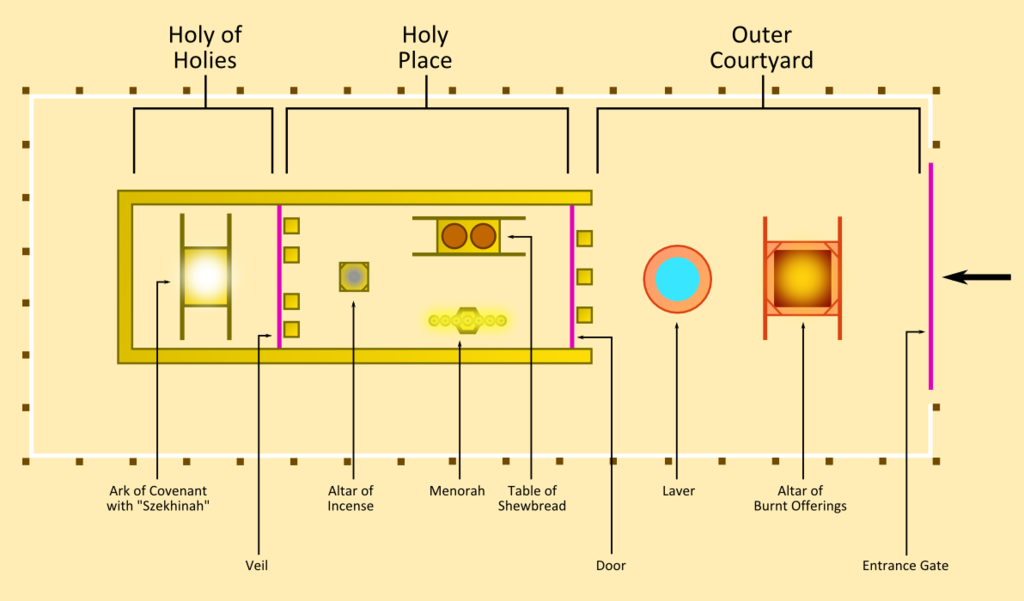
The ancient temple of Israel, in addition to its public-gathering courts, was constructed around a generally-inaccessible inner chamber, the “holy of holies,” wherein, it is said, the very presence of God could be accessed. Only the High Priest was allowed into the “holy of holies,” and this, but once a year, on the Day of Atonement.
On this holy day, the High Priest would offer sacrifice and enter the inner chamber to gain forgiveness for the sins of Israel. This annual ritual is highly symbolical, pointing toward a purification of the unenlightened mind led by the dysfunctional ego.
Gentiles could enter the "outer courtyard." In so doing, these non-Israelites could gain a good working knowledge of the temple rituals. They could tell you much concerning the proceedings therein. However, despite much knowledge, they remained mere visitors to the process.
So it is with many teachers of the inner life. They know much about it. They can even sense its vitality within their own spirits. And yet, with all this, they continue as strangers to the atonement. In this state of mind, they will never visit God, directly and intimately, within the "holy of holies."
See the "ultimate reality" page for other biblical teachers who viewed the "holy of holies" as symbolic of the sanctity of a mind personally surrendered and devoted to God.
|
how to deal with this
I think Saint Francis, and ones like him, provides the best model of what a teacher needs to do, and how to live, to effectively promote “the truth.”

Probably, a “vow of poverty” is not strictly called for, but assuredly one must live modestly, honestly, with no thought given to self-aggrandizement and empire-building. Once there’s a step over the line into accumulating largesse, then it’s essentially over in terms of doing one’s best work.
Editor’s note: This problem happens on the other side, as well - dysfunctional teachers over there crave the limelight, want to appear as big shots, while espousing empty platitudes. The effect of this might be to bedazzle unwary followers, but – no true change of human nature takes place.
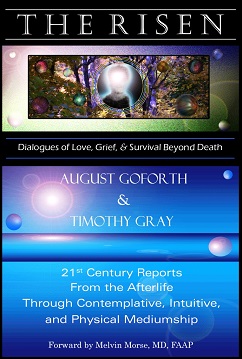
An acquaintance of mine, August Goforth, pointed out to me that, in his book, The Risen, there’s a chapter on Krishnamurti. After K crossed over, he contacted August, who has psychic abilities.
You’ll want to read the account for yourself, but, essentially, as it strikes me, K sounds like a hollowed out and brittle neurotic. It would appear that his leading a “double life” left him in a very weakened state of cognitive disability.
without prejudice
All this mayhem, as it might be, should not be taken as indicator that the Krishnamurti teachings lack value. I will say there is tremendous value contained therein. But the teachings must be properly applied, and lived; also, certain of K's precepts need some fine-tuning. No one will be aided by "I read the book but nothing happened."
K’s double life and secret sins cut him off from perceptions of what all this potential higher sensibility is for. And what is it for? – everything needed to gain an evolved life; but, the greatest prize of all will be the recognition of one’s eternal mate. K knew nothing of this. Here is Dr. John Welwood’s incredibly insightful comment on lovers’ soul resonance:
sacred alliance: heart versus soul connection
|
Dr. John Welwood:
“A soul connection is a resonance between two people who respond to the essential beauty of each other’s individual natures, behind their facades, and who connect on this deeper level… It is a sacred alliance whose purpose is to help both partners discover and realize their deepest potentials. While a heart connection lets us appreciate those we love just as they are, a soul connection opens up a further dimension – seeing and loving them for who they could be, and for who we could become under their influence… Someone who loves us can often see our soul potential more clearly than we can ourselves.”
Two beings who have a soul connection desire, indeed, are compelled, to engage in a full, free-ranging dialogue with each other. However, when I place some part of myself as off-limits to discussion, I am essentially saying, “I refuse to be conscious in this place. Stay out.” This makes her feel that we do not have an unconditional connection. The ego does not want to have its cover blown; it wants to live in darkness. If we identify with this cover, we not only erode relationship but we ourselves remain alienated from who we really are. The true mate sees who we truly are and will enter into “sacred combat” to free her lover from his lower nature. She will not “go along to get along” when it comes to the sanity of her mate.
READ MORE
|
|



.jpg)





